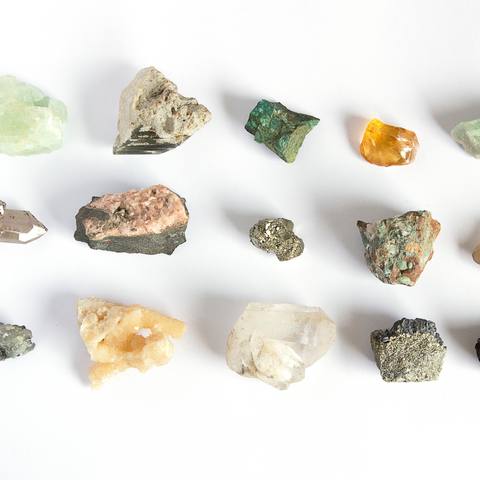
Intention Setting 101: 5 Ways to Mindfully Set Your Goals
What's the first thing that comes to mind when you think about setting goals? Maybe your first thought relates to our often productivity-obsessed culture. A culture that is always pushing us to work faster and harder; to achieve more with fewer resources in less time.
While there is much to say for diligence, ambition, and productivity, it's also essential to recognize the flipside. There are also "softer" attributes that we must possess to reach our goals. Just a few of the softer attributes that play an equally vital role in our achievement-related goals include mindfulness, clarity, and creativity, to sum this up into one word - intentionality.
What's the difference between a goal and an intention?
At first glance, you might fail to see the difference between these two terms. However, the meanings behind each vary greatly. When you focus on achieving a goal, you're most likely concerned with an external achievement of some sort. Goals exist in the future and suggest that happiness is just around the corner, rather than the here and now.
Intentions, on the other hand, are grounded in the present moment. They have more to do with your relationship with yourself, with others, and with the world around you. An intention, while still aspirational in nature, is something you can connect with in the very moment in which you bring it to mind.
We as humans still crave - and require - goals to help us move forward in life in a meaningful way. The key is to weave intentionality into our goal-setting. That way, we can still focus on getting what we want but can do so in a way that serves our highest purpose.
Here are five ways that you can take a mindful approach to set your goals.
Integrate Meditation
Meditation is a powerful way to connect with your deepest needs and desires. More importantly, meditation is a tool that can help you align with your core values and beliefs. Having a better understanding of what you value will help you set goals not only more intentionally, but with more purpose behind them.
If you're already a seasoned meditator, this should feel quite familiar to you. However, even if you're new to the practice, contemplating your intentions is a beautiful way to begin a new habit of meditation.
It might not be crystal clear after your first go at it, but keep practicing with consistency, and you will begin to see things in a new and brighter light.
Use the Power of Affirmation
The power of affirmations is used not only in spiritual practice but also in modern psychology. As the Buddha said, what we think, we become. Our minds are extraordinary machines, and we can harness them in ways that help us set and reach our goals with authenticity and clarity.
Using affirmations is rather simple. All you need to do is choose a phrase, quote, or mantra and then repeat the words either silently or out loud in a mindful manner. Which affirmations resonate with you will depend much on your particular goals and intentions. Do some research to find which fits your purposes the best.
Bring Pen to Paper
One of the most powerful tools of manifestation is that of journaling. This tool is especially useful when applied in tandem with intention- and goal-setting. You don't have to be a writer - or even have to like writing - to reap the benefits of journaling.
Journaling helps you prioritize problems, fears, and concerns. By doing this simple practice, you get into the habit of freeing your mind from limiting beliefs surrounding your vision.
Try journaling for just a few moments each morning or evening, with a loose focus on your intentions and goals. You might be surprised how much clarity you gain from doing so.
Involve Trusted Others
Human beings are social creatures. We require love, affection, belonging from trusted others to maintain a well-balanced sense of self. Since a key piece of intention-setting involves your intentions' relationships with others, it can be useful to connect with your loved ones in this regard.
It's in your best interest to include people who you can trust. Choose those who will be supportive, loving, and compassionate towards you when sharing such intimate truths revolving around your intentions.
Practice Patience
There's a reason why we say that patience is a virtue. After all, what's more, virtuous than trusting in the process and letting universal energy flow freely, on its own terms?
It should come as no surprise to you that goals take time to complete; this is true whether you craft them with intentionality or not. Practicing patience is a loving way to engage in radical acceptance, which is the act of fully accepting reality as it is in the moment.
True, this practice is easier said than done. Luckily, patience is like a muscle - it gets stronger the more you use it. Understanding that seeing your dreams and goals come to fruition is an act of patience is the key to maintaining a healthy awareness and open-mindedness to the inherent variability of life.
